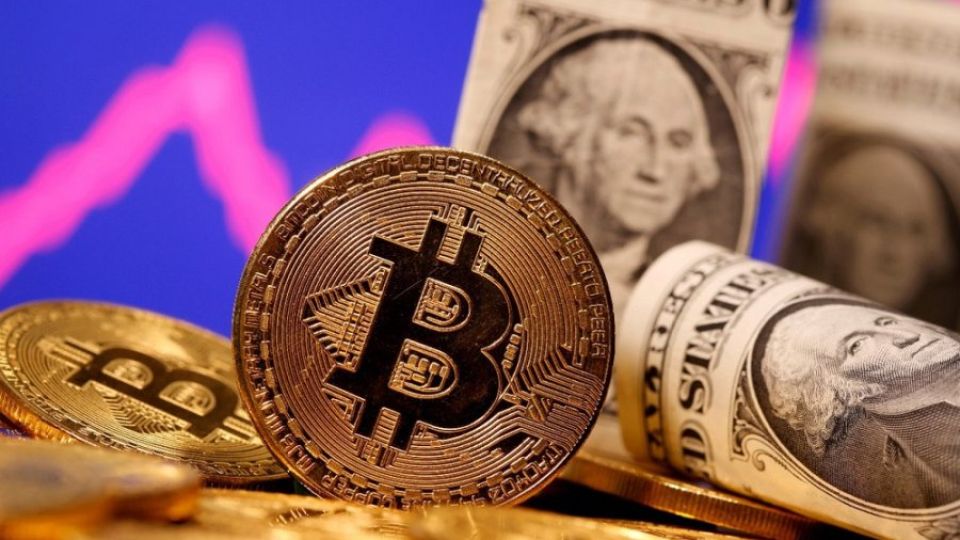July 24, 2023
JAKARTA – Indonesia has established its own exchange, clearing house and depository for cryptocurrencies.
According to Commodity Futures Trading Regulatory Agency (Bappebti) head Didid Noordiatmoko, those institutions support the government’s endeavor to build an equitable trading ecosystem and ensure customer protection.
“Physical trading of crypto assets carries a high degree of risk. By their nature, crypto assets can increase or decrease in value drastically in a short time. Therefore, the community must have a clear understanding of the benefits, opportunities and risks related to trading crypto assets,” Didid said in a statement on July 20.
Indonesian law does not allow for bitcoin or other cryptocurrencies to be used as a means of payment, which is why they are officially referred to as crypto assets, not cryptocurrencies.
The three new institutions are based on three Bappebti decrees issued on July 17.
According to the decrees, PT Bursa Komoditi Nusantara will operate as a crypto asset futures exchange, PT Kliring Berjangka Indonesia will serve as a futures clearing house for the guarantee and completion of trading in the market and PT Tennet Depository Indonesia will manage crypto asset storage.
Didid emphasized that the crypto asset industry in Indonesia, based on the Financial Sector Development and Strengthening Law, would be well-maintained and could contribute to the economy through state revenue.
Like in much of the world, crypto trading has attracted a rapidly increasing number of people in Indonesia.
In June 2023, 141,800 new customers were trading crypto assets, according to the Beppebti statement, and 17.54 million Indonesians are now registered as utilizing crypto assets.
The number of crypto asset transactions in June rose 9.3 percent over the previous month, with Tether (USDT), Bitcoin (BTC), Ethereum (ETH), Ripple (XRP) and Binance Coin (BNB) being among the most-traded assets. However, at Rp 66.44 trillion, the total transaction value in the first half of 2023 was down 68.65 percent from the same period last year.
Didid added that the global crypto market had seen a decline in both transactions and prices for crypto assets but said the increasing use of blockchain technology by businesses boded well for the future.
“Blockchain technology is integrated into the operations of companies, including Meta, Google and Twitter. As a result, this [integration] demonstrates that the future of crypto asset trading remains promising,” Didid said.
Indonesia launches its bitcoin exchange at an ideal time, according to Christopher Tahir, cofounder of CryptoWatch, a community focused on educating users about cryptocurrencies.
He noted that, although the concept was “excellent”, the crucial step was to put it into practice.
“Everything is still at the conceptual stage, and nothing has been put into practice. Unlike the OJK, which is rather stable, Bappebti has also experienced numerous organizational restructurings. Thus, everything is in order when viewed through the lens of the Indonesia Stock Exchange. As a result, this mechanism is applicable for crypto,” said Christopher.
He added that the move may enhance liquidity in the country, noting that a lack of liquidity had prompted some people to move their crypto trading abroad. “Basically, people just forget about local traders and [move their] trade out,” he said.
Oscar Darmawan, the CEO of Indodax, said he was convinced that cryptocurrency could drive the Indonesian economy, even though it [the market] had experienced a slowdown compared to the last year or two. In fact, Oscar claimed, Indonesia was one of the nations with the greatest growth rates for establishing crypto futures exchange organizations.
“We can see that crypto developments worldwide are being watched because of their potential. Even the world’s largest asset management companies, like BlackRock, are investing in crypto,” Oscar told The Jakarta Post on July 21.
He said he hoped the government’s crypto futures exchange, once it was inaugurated, would not charge overly high fees, “because the domestic industry would suffer the most” and users may take their business overseas.
“We hope that the formation of this exchange can strengthen the crypto ecosystem in Indonesia, which has been built and is maintained by crypto stakeholders,” Oscar urged.
Bayo Adhika Putra, a researcher from Tenggara Strategics, a think tank connected to The Jakarta Post, said the government needed to tread carefully in formulating cryptocurrency regulations.
“If the government wants crypto trading to contribute to government revenue, then it’s natural to expect some kind of benefits or trade-off for the participants to use the government’s exchange over private ones. Is it more secure? Is it faster? More efficient? Cheaper? What are the benefits?” Bayo said.
“Because of the relative novelty of government crypto exchanges, there are still no best practices for regulating them,” he concluded.


